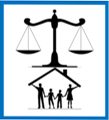
Divorce Lawyer
As divorced couples have experienced firsthand, divorce can be a life-altering experience, and our divorce lawyer will share that divorce can have far-reaching consequences for individuals and families. When a marriage is irretrievably broken, the legal process of divorce provides a framework for resolving numerous issues, including child custody, asset division, and spousal support. Our team from Robinson & Hadeed can help divorcing couples delve into the intricacies of divorce law, shedding light on the key considerations and steps involved in this challenging journey.
Grounds for Divorce
Divorce laws vary by jurisdiction, but most jurisdictions recognize “no-fault” divorce, which allows couples to dissolve their marriage without proving wrongdoing by either party. No-fault divorce typically requires a showing of irreconcilable differences or an irretrievable marriage breakdown. However, some jurisdictions still allow fault-based divorce, where one party must prove that the other engaged in misconduct such as adultery, abuse, or abandonment.
Legal Process and Proceedings
Once the decision to divorce is made, the legal process begins with filing a petition for divorce or complaint in the appropriate court. The spouse filing for divorce is known as the petitioner, while the other spouse is referred to as the respondent. The petitioner must serve the divorce papers to the respondent, who then has an opportunity to respond within a specified timeframe.
Child Custody and Support
One of the most significant aspects of divorce is determining child custody and support. Courts strive to establish custody arrangements in the child’s best interest and promote the child’s physical and emotional well-being. Factors considered may include:
- The child’s age
- Existing relationship with each parent
- Their ability to provide a stable environment
Child support, which ensures the child’s financial support, is calculated based on various factors such as income, expenses, and custody arrangements.
Division of Assets and Debts
Another crucial aspect of divorce is the equitable distribution of assets and debts. Jurisdictions follow either community property or equitable distribution principles when dividing marital property. Community property states generally divide assets acquired during the marriage equally, while equitable distribution states aim to divide property fairly but not equally. The court considers various factors, such as the length of the marriage, each party’s contributions, and the economic circumstances of each spouse.
Spousal Support
Spousal support, also known as alimony or spousal maintenance, is another critical element in divorce proceedings. It aims to provide financial support to the dependent spouse after the divorce. The court considers factors such as the length of the marriage, each spouse’s earning capacity, and their respective contributions to the marriage when determining the amount and duration of spousal support.
Alternative Dispute Resolution
While divorce cases often end up in court, alternative dispute resolution methods can help couples reach agreements without litigation. Mediation and collaborative divorce are two common approaches where a neutral third party helps facilitate negotiations between spouses. These methods promote open communication and empower couples to make decisions that suit their unique circumstances, often resulting in more amicable and less costly outcomes.
Divorce is a complex legal process that requires careful consideration of various factors, including child custody, asset division, and spousal support. Understanding the legal framework and seeking professional guidance can significantly ease the journey and ensure a fair and equitable resolution. Although divorce can be emotionally challenging, being well-informed and working collaboratively can pave the way for a smoother transition and a brighter future for all parties involved.


